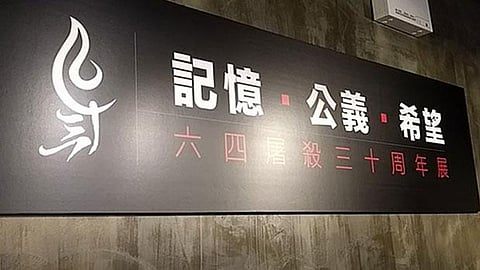Hong Kong is the only Chinese city that still holds regular memorial events for the victims of the massacre, including the Alliance's mass candlelight vigil in downtown Victoria Park. Pixabay
"The most important aim is to preserve the truth, and to continue to speak that truth to power," Ho told RFA. "The entire museum is organized around three key themes: the first is memory, we absolutely will not forget."
"History can only be shown respect through accurate remembering, which brings hope for the future," he said. "The second part is about justice, which we are continuing to fight for, and the apportioning of responsibility."
"The third is the future," he said. "We can only achieve a bright future through the study of history." Hong Kong resident Cheung Wing-fai, who took part in the 1989 student movement, said the museum also wants to ensure that the next generation of Chinese people and non-Chinese people know about the Tiananmen massacre.
"I think I have to stand up for what I believe in, so I will find as much time as I can to do that," Cheung said. "Thirty years ago, I led my students to the demonstrations, but now they are all adults with jobs and families."
"I will tell them that the museum is now open, so they can bring their sons and daughters here if they want to do that," he said. "They may not have the same views, but at least they have that option." "That's the whole point of this museum," Cheung said.
Calls for democracy
The student-led protests in the spring and early summer of 1989 brought central Beijing to a standstill, with hundreds of thousands of people taking to the streets to call for greater democracy and an end to official corruption.
Organizers have previously said they suspect that Beijing may be behind a series of complaints and disputes against the museum, where landlords have accused it of breaching zoning regulations, and local residents have complained about the potential disturbance from visitors.
The museum drew more than 20,000 visitors in the first two years of its existence, with its first opening marking the 25th anniversary of the massacre. Around half of its visitors come from mainland China, which has erased references to the bloodshed from official accounts and bans public debate or memorials for victims.


